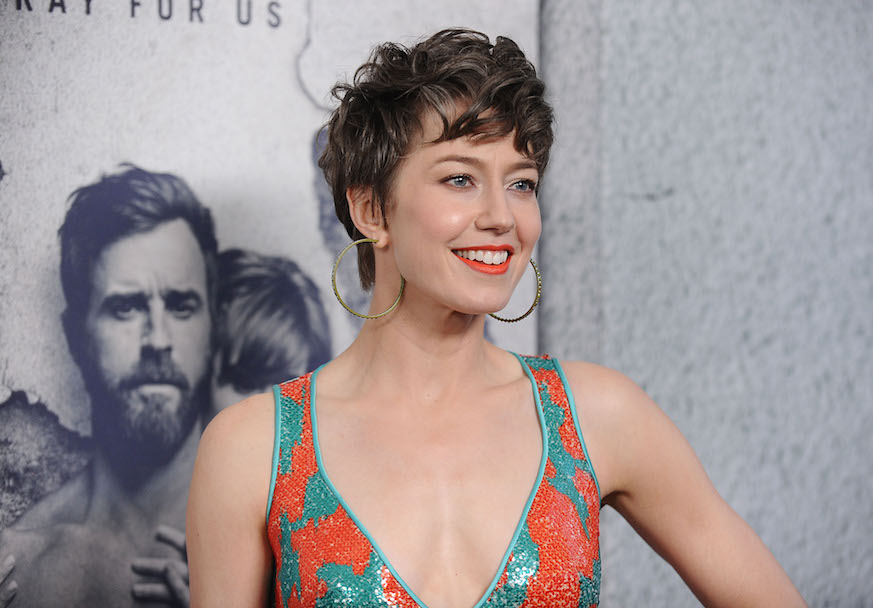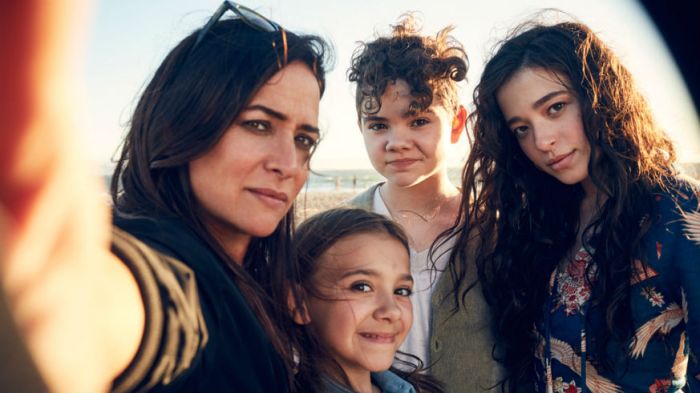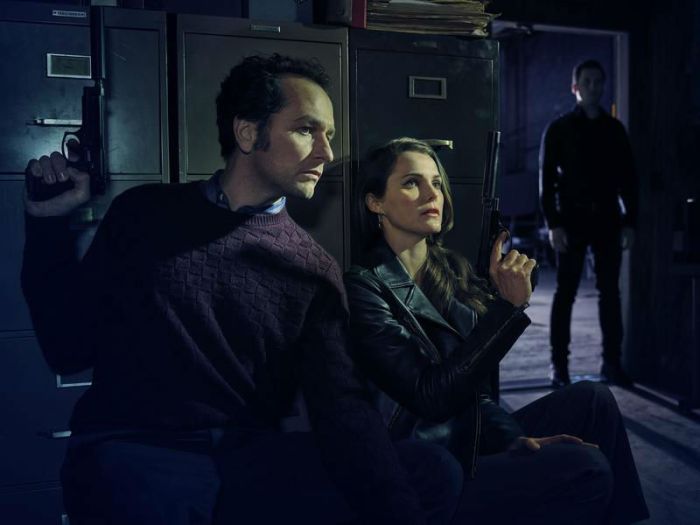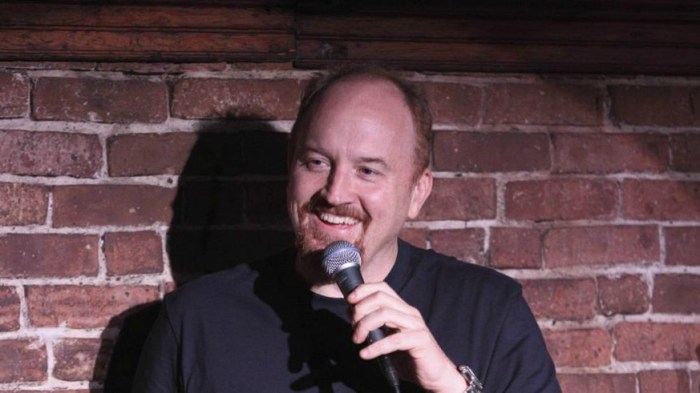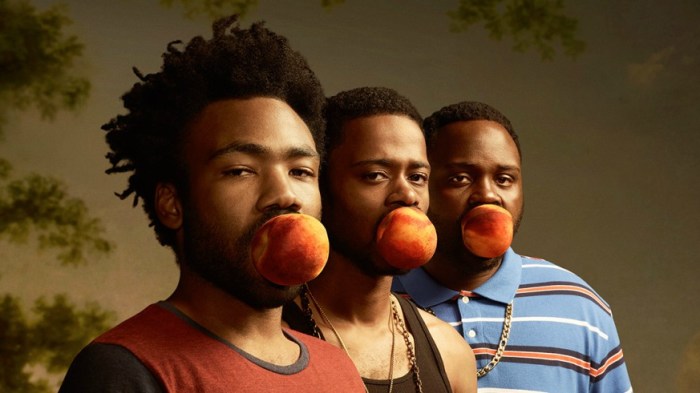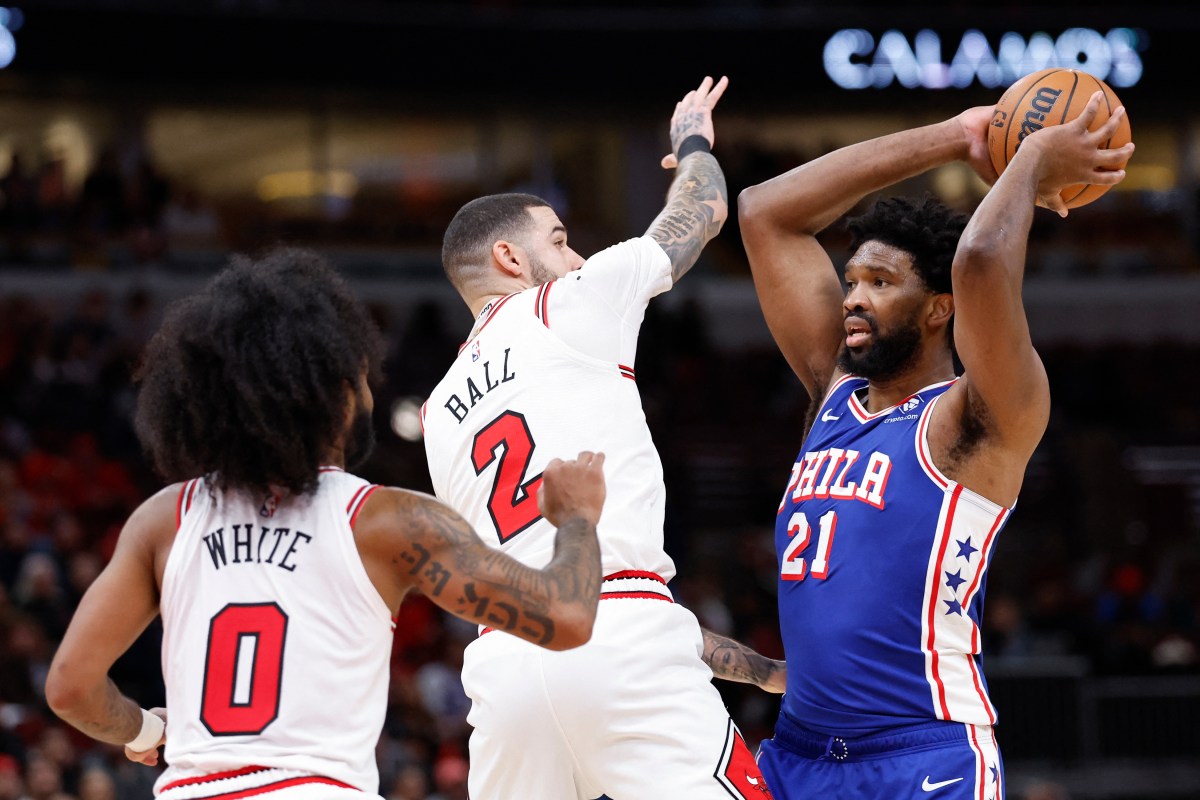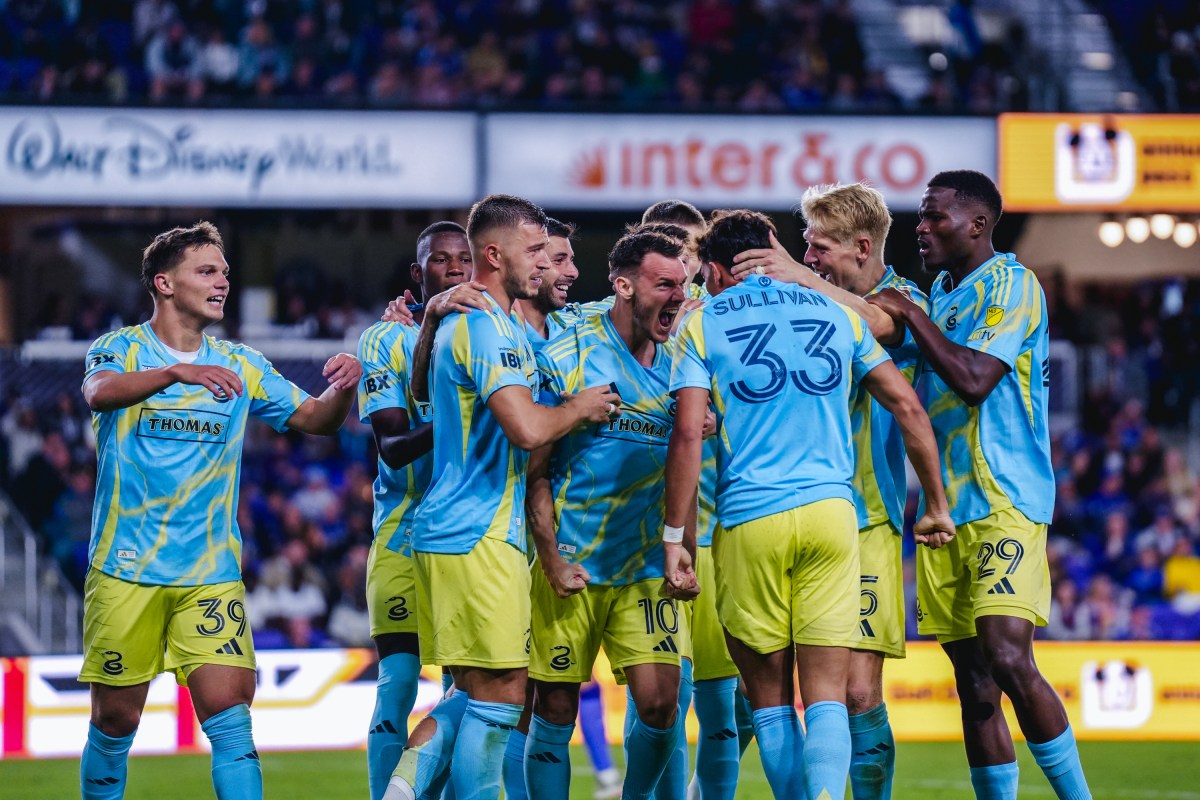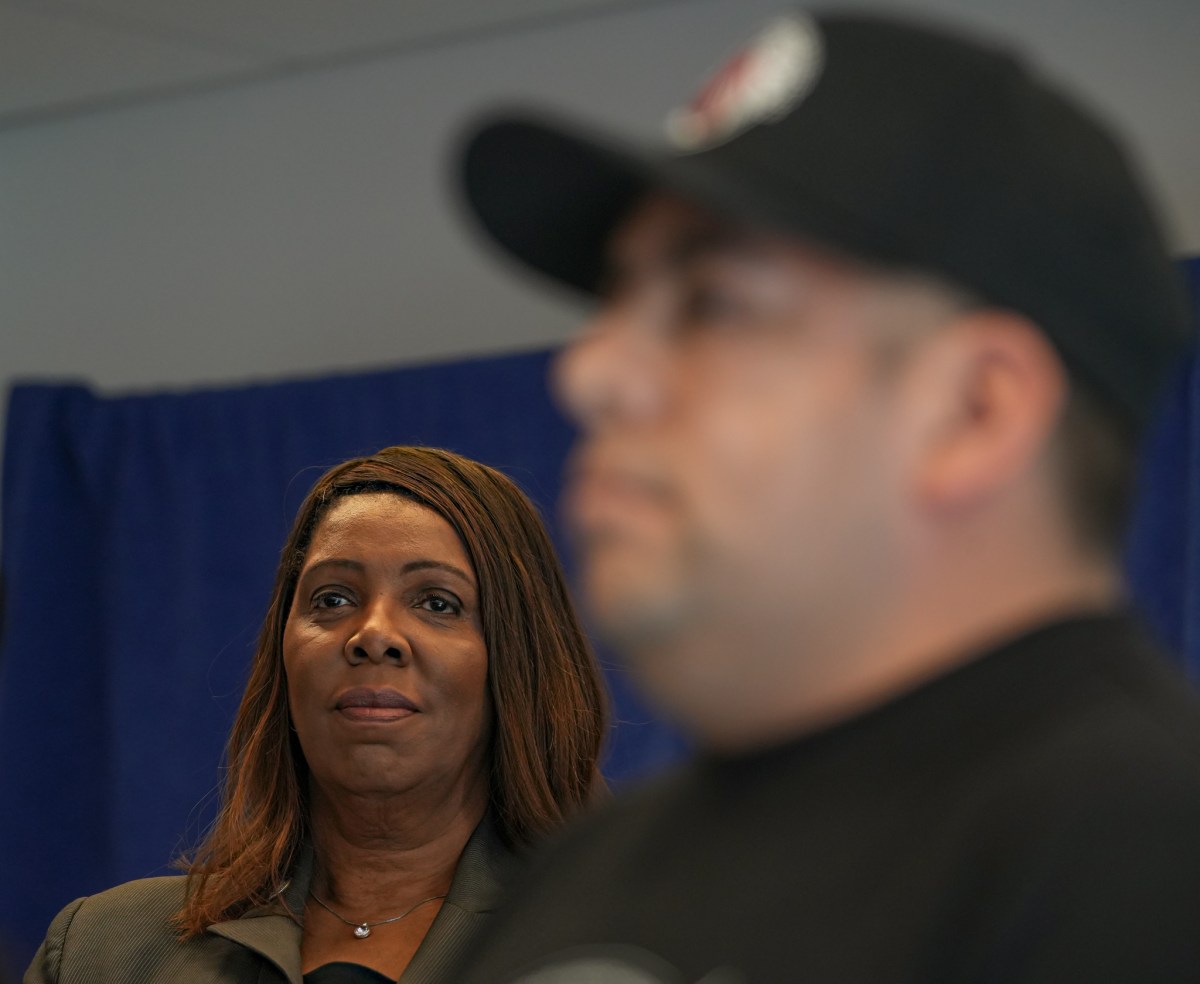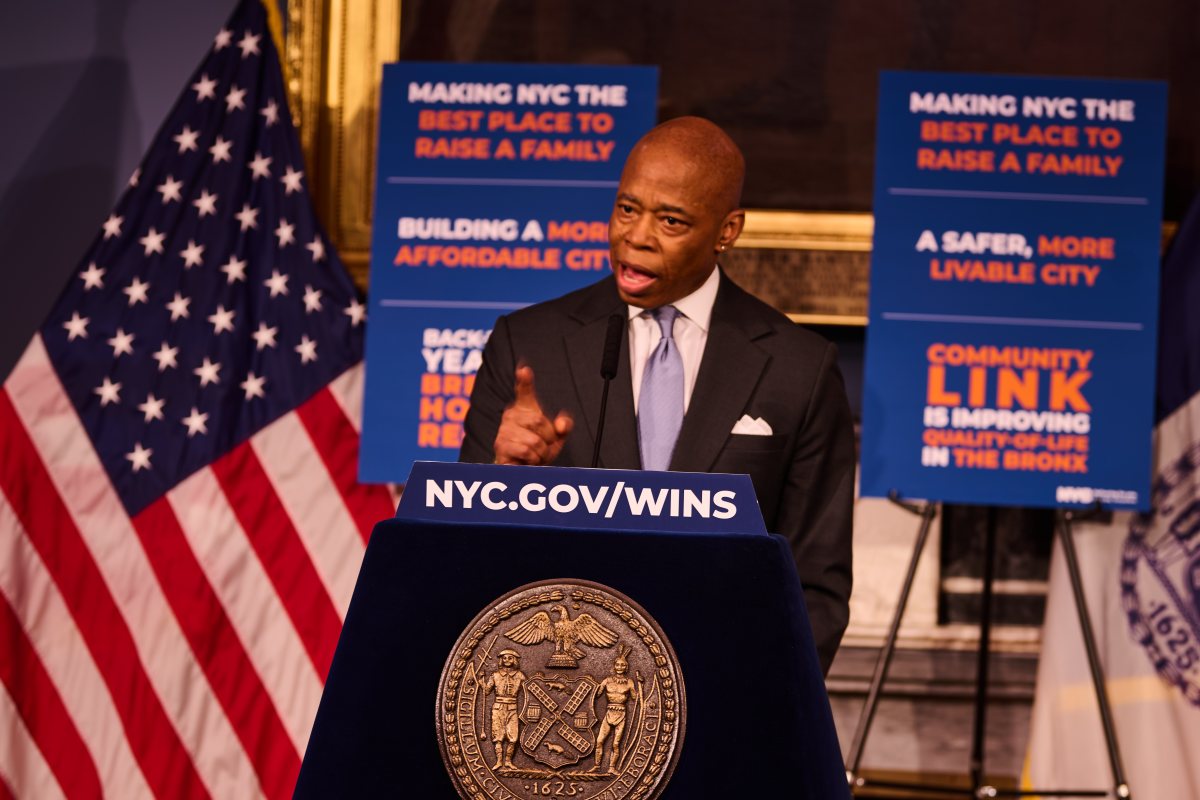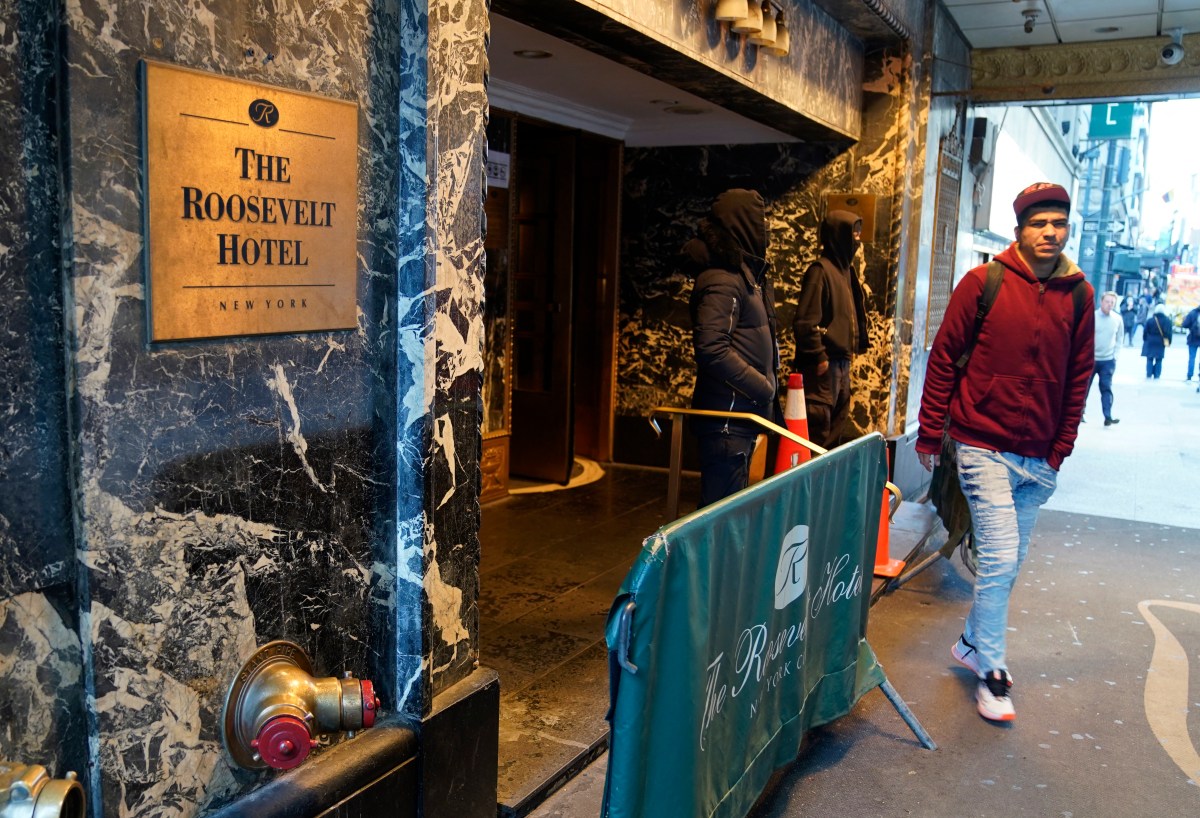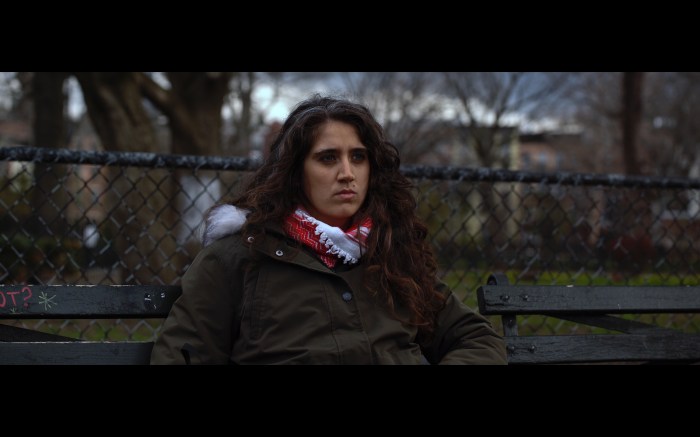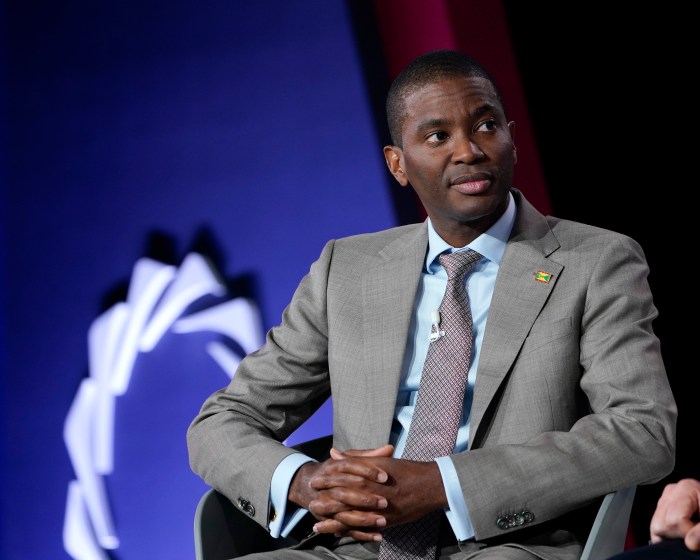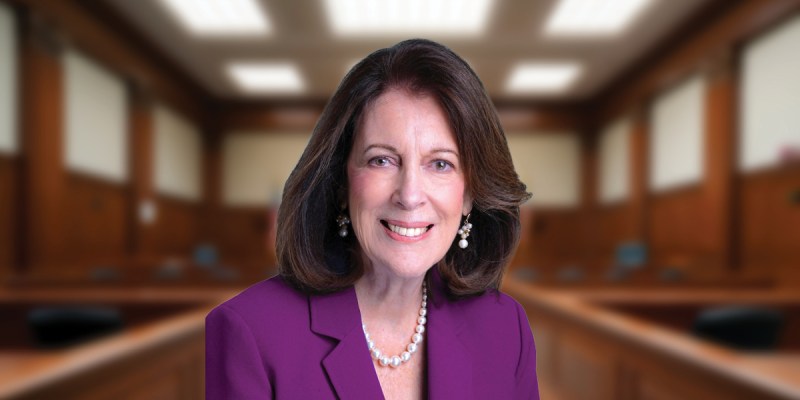Carrie Coon calls in from Calgary, Canada, on an early spring day when it’s not quite cold enough so “the poor bastards” have to truck snow down from the mountains and wheelbarrow it all over the set.
She’s wrapping “Fargo” Season 3, Noah Hawley’s true crime anthology inspired by the Coen Brothers’ 1996 film, which of course requires a heavy blanket of snow to get the full effect of characters mired in both the landscape and quandaries of their own making.
The actress has a leading role as police chief Gloria Burgle, a stoic single mother Coon describes as “the least Minnesota nice of the Minnesota nice sheriffs,” after the film’s Marge Gunderson (Frances McDormand) and “Fargo” Season 1’s Detective Molly Solverson (Allison Tolman). The crime she’s investigating this season, which airs Wednesday, April 19, involves a longstanding feud between twin brothers, one a lowly parole officer and the other a real estate mogul known as “the parking lot king of Minnesota,” both played by Ewan McGregor.
The 36-year-old also returns to “The Leftovers,” which airs its third and final season on Sunday. In Damon Lindelof’s apocalyptic drama, she stars opposite Justin Theroux as Nora Durst, a grief-stricken woman who struggles to make sense of a world that has mysteriously disappeared her husband and children, along with 140 million others.
On the surface, the shows don’t have much in common, but I have felt they both depict doomed characters in hopeless situations. When I mention this to Coon, she laughs.
“I don’t see it that way at all! Both of these shows reveal more about the viewer than they do any of us. Are you feeling doomed and hopeless, Kate?”
The Chicago native, whom you probably recognize as Ben Affleck’s sister in “Gone Girl,” says ultimately, both series are about how resilience gets people through the most maddening of circumstances. That reminder couldn’t come at a better time.
‘The Leftovers’ has an apocalyptic bent, and with each season of ‘Fargo,’ you know things are bound to go wrong.
They share moral ambiguity. Noah [Hawley] and Damon [Lindelof] are similar. They’re both very fine alembics for the time we’re living in. In some ways I feel that the world has caught up with “The Leftovers.” It’s about collective grief and how we make meaning, and I feel that a lot of the people I know and love are really struggling to do that right now. Likewise, Noah is perfectly willing to put these characters we care about into challenging circumstances and the viewers watch them try to make sense of the world that they’re in. There’s never a pure moral victory in “Fargo.” The hero is always flawed and they never win without a cost. To me, Damon and Noah are both representing the world more realistically than most shows on television. Others choose to make the story neat and tidy so that we’re entertained and we can sleep at night.
Do you see any points of comparison between Gloria and Nora?
They both don’t suffer fools. They have a kind of phlegmatic steadiness — although we see what happens with Nora of course is that that’s bottled up. You’re less likely to see Gloria explode. They both have a kind of abstemiousness; they’re not self-indulgent people, these two. And I like to think I bring a sense of humor to my work even in the most serious worlds I’m moving through. Nora has a sly sense of humor and likewise Gloria has that sarcasm. My people in the Midwest have it, anyhow.
Right, you are Midwestern!
These are my people, through and through. This kind of stoicism and this quality of believing that bad things don’t happen to good people and that there’s a way to make sense of the world around us. That’s definitely a hallmark of the place I grew up. Gloria’s looking for a logical explanation for what’s happening. And if the world is meaningless, that undermines her sense of purpose entirely.
Nora is doing the same thing: looking for a logical explanation for a tragedy. They’re both thrust up against the absurdity of that, our fear of the inevitable. And the idea that decency will be rewarded in the world — that gets taken from both of them. My people definitely try to hang onto that! [Laughs] They’re not fussy women.
What can you tell viewers about this final season of ‘The Leftovers’? Will we get any answers? Will Nora find peace?
I found the ending —where we leave Nora — very satisfying. I love the kind of atavistic perspective we bring to the show by going down to Australia. There’s a clash of cultures really, of the primitive roots of our spiritual life and the Judeo-Christian ethic we’ve been dealing with. For me that mystery is really stimulating. Nora is discovering the place just as we are. It could have been a really explosive, shocking ending, and instead the ending they chose is deeply personal and specific and about relationships, which Damon has always been preoccupied with. If you were to talk to him about his own world view, [he’d likely say] the meaning gets made between people, and that trumps everything else.
How do you think viewers will respond differently to ‘The Leftovers’ this season, against the backdrop of real world chaos?
The lens has really shifted in the last few months. Like I said earlier, the world has really caught up to “The Leftovers.” It’s almost a bit of a premonition of what was coming in terms of what we see as an unraveling. But that’s why I think the message of the show is hopeful, because you see the resilience of human beings and our ability to keep remaking our belief systems to adjust to what the world is throwing at us is actually a pretty unique skill for an organism to possess. And the momentum of the show mirrors the chaos of the world right now. There’s a rapid unfolding, because we only had eight episodes to finish the story. I hope our fans will appreciate that shift in pacing this year.
With ‘Fargo’ this is your last season too, although it’s also your first season. Do you feel like you’re saying goodbye to both shows?
In some ways “Fargo” feels like a big ten-hour movie, when you’re working on a one-off like that. Inhabiting a character for one season feels very fresh. You sort of just start decoding the person and then it’s over. I will leave Gloria with her still being somewhat of a mystery to me. But I feel the same way about Nora: three years was the perfect amount of time to play her. One year, three, years: sign me up. Seven or eight years, I think I would chafe under that. It’s hard enough to be yourself every day. [Laughs]

